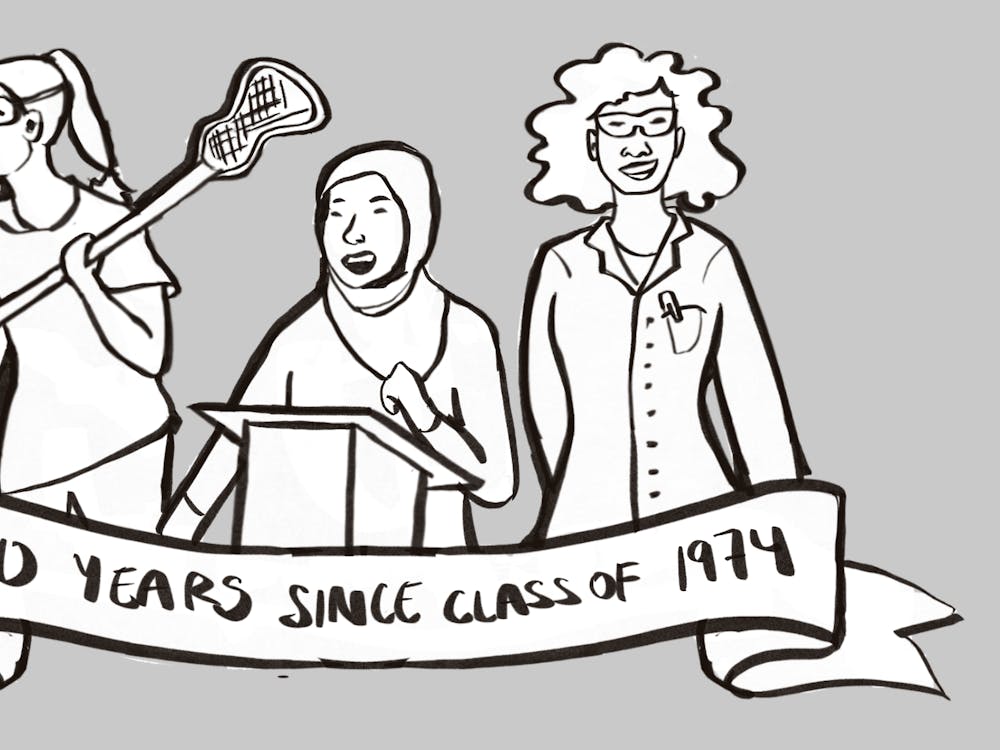About once a year, the fraternity debate is reignited at Hopkins, and the same arguments are trotted out. Fraternities are good, look at the brotherhood; fraternities are misguided, they need Bystander Intervention Training (BIT); fraternities are neutral parties, the problem is alcohol. People avoid condemning fraternities as a whole institution. The administration does not want to anger a large portion of the student body, and non-affiliated students don’t want to face the social consequences of criticizing fraternities. I think fraternities are misogynistic and cannot be reformed.
It is important to note that the studies I will be citing analyze “fraternities,” which refer to Interfraternity Council (IFC) fraternities, not ethnic, service or professional fraternities. In this article, when I use the word “fraternities,” I am referring to IFC fraternities.
The raison d’être of fraternities is to mold boys into men in a brotherhood. The problem is that no fraternity attempts to subvert what manhood is beyond the usual patriarchal model, inherited from the 19th century, when most fraternities were formed. The ideal man of the 1800s is the exact same ideal man of 2017: The slogans, the values and the models are identical. Even the “good” fraternity on campus, Beta Theta Pi, is embedded with toxic masculinity. Their slogan, “men of principle,” doesn’t interrogate but reinforces what society holds to be an ideal man.
The inherited traditional hegemonic manhood invariably leads to internal misogynistic values being expressed externally through sexual harassment, assault and rape. I could cite the various incidents that have been reported at Hopkins as proof, but that would just be the tip of the iceberg. Instead, I allow my readers, who have overheard something sexist at a frat party, witnessed harassment at a frat party, been groped at a frat party, heard stories about incidents at frat parties (or worse) fill in the blanks.
Study after study points to fraternity members being more likely to sexually assault women or hold sexist views.
Although the overwhelming majority of studies about fraternities reach similar conclusions, there are a few outliers. For example, a study in the Journal of College Student Development concluded that although fraternity members reported more sexually aggressive attitudes, non-fraternity members showed a higher positive correlation between hyper-masculine attitudes and hostility towards women.
A study in Family Relations found that fraternity members were more likely to use coercion, drugs and alcohol as a sexual strategy. That finding was repeated by a study in Violence and Victims, which also found that fraternity members were more likely to use physical force. A study in Springer concluded that fraternity membership is one of the best predictors of sexual aggression.
A study in Sex Roles showed that fraternity men are likelier to have traditional views of women and to be sexually coercive. A study in the International Journal of Undergraduate Research and Creative Activities, published in August 2017, reported that fraternity members were more accepting of rape myths and less engaged in bystander intervention activities than non-fraternity students. There are dozens of other studies with similar results that I cannot fit into this piece.
The usual response to the overwhelming body of evidence pointing to the misogynistic fraternity culture involves anecdotal evidence of cosmopolitanism or deflection to good things fraternities have done. As for the first argument: I have multiple friends in fraternities. I think they are wonderful people. I am still able to critique institutions they are a part of. And good P.R. is just that — P.R. I remember the great photo-ops when the president of Pi Kappa Alpha and the president of Sigma Alpha Epsilon were involved in BIT.
The deflection to charity implies that assault and misogyny are just the price we have to pay. It doesn’t matter if fraternities are hubs of violent misogyny if they raise money for charity. Why are you selfish women complaining?
This is one of dozens of op-eds concerning fraternities that have been included in The News-Letter, and I’m sure many will follow. The same arguments will happen, the revolving door of fraternities getting suspended or started will turn and so on and so forth. But I hope that people can at least start grappling with the notion that fraternities are not reformable. As long as they exist, they exist as cesspits of misogyny and whispered warnings to avoid.
Emeline Armitage is a senior International Studies, Latin American studies and Spanish major. She is from Cleveland, Ohio.






















Please note All comments are eligible for publication in The News-Letter.